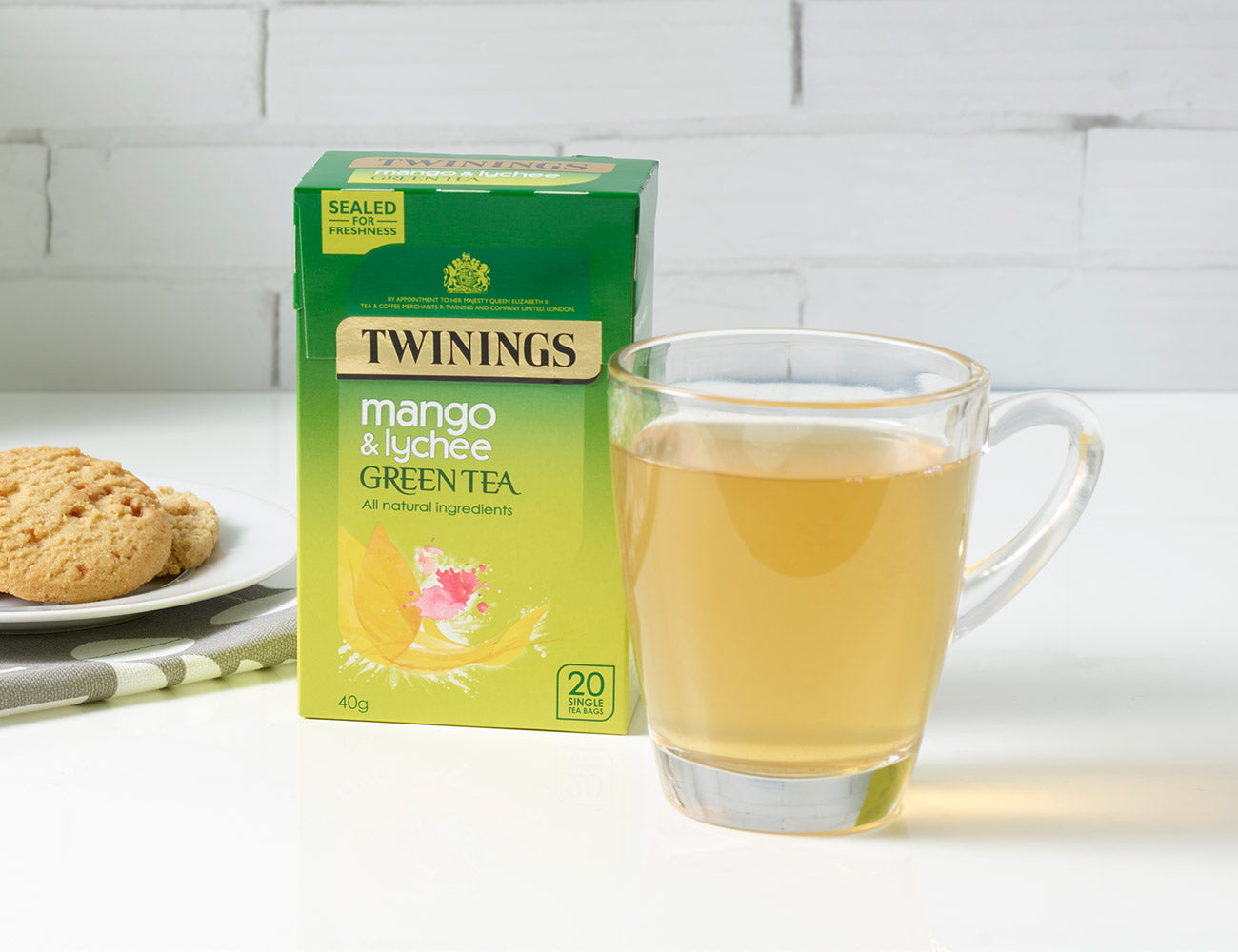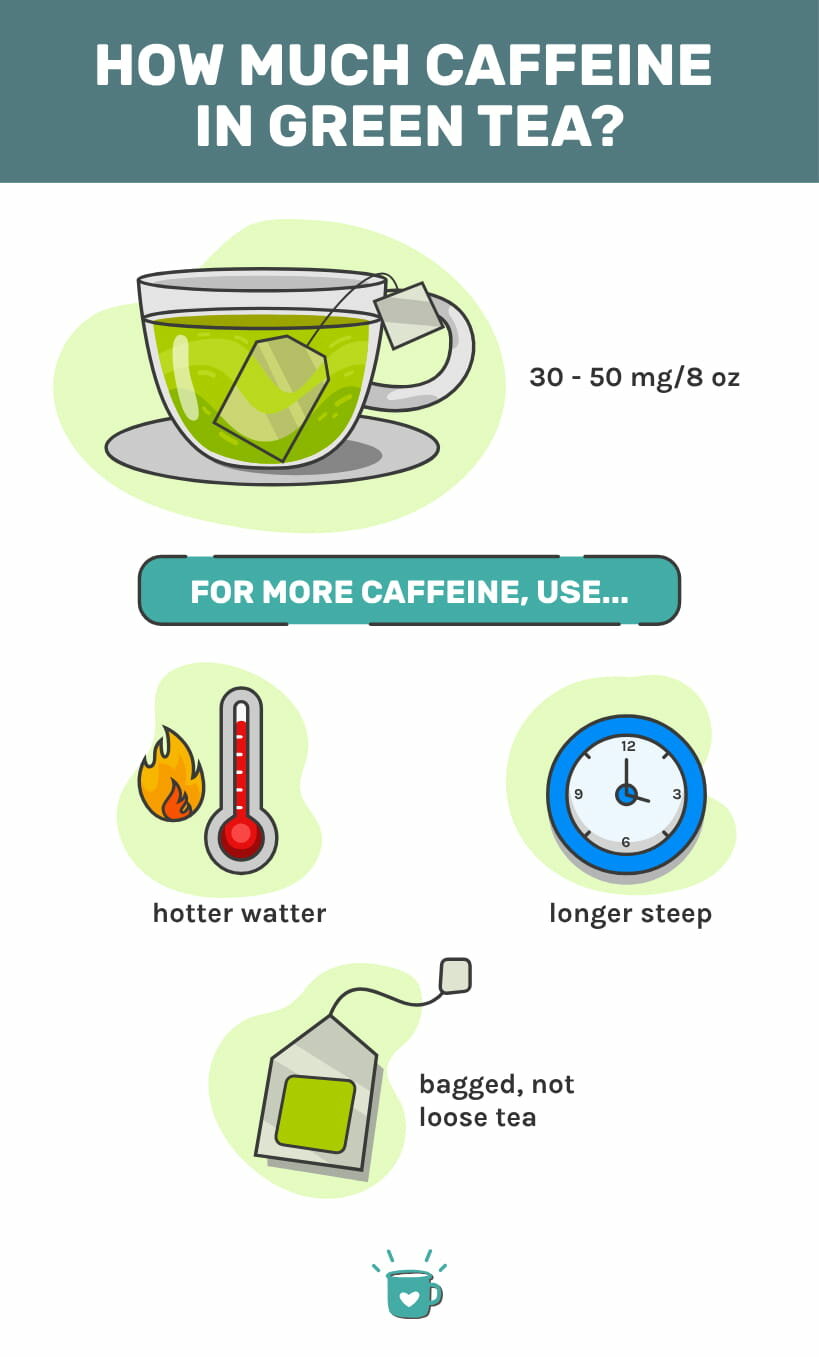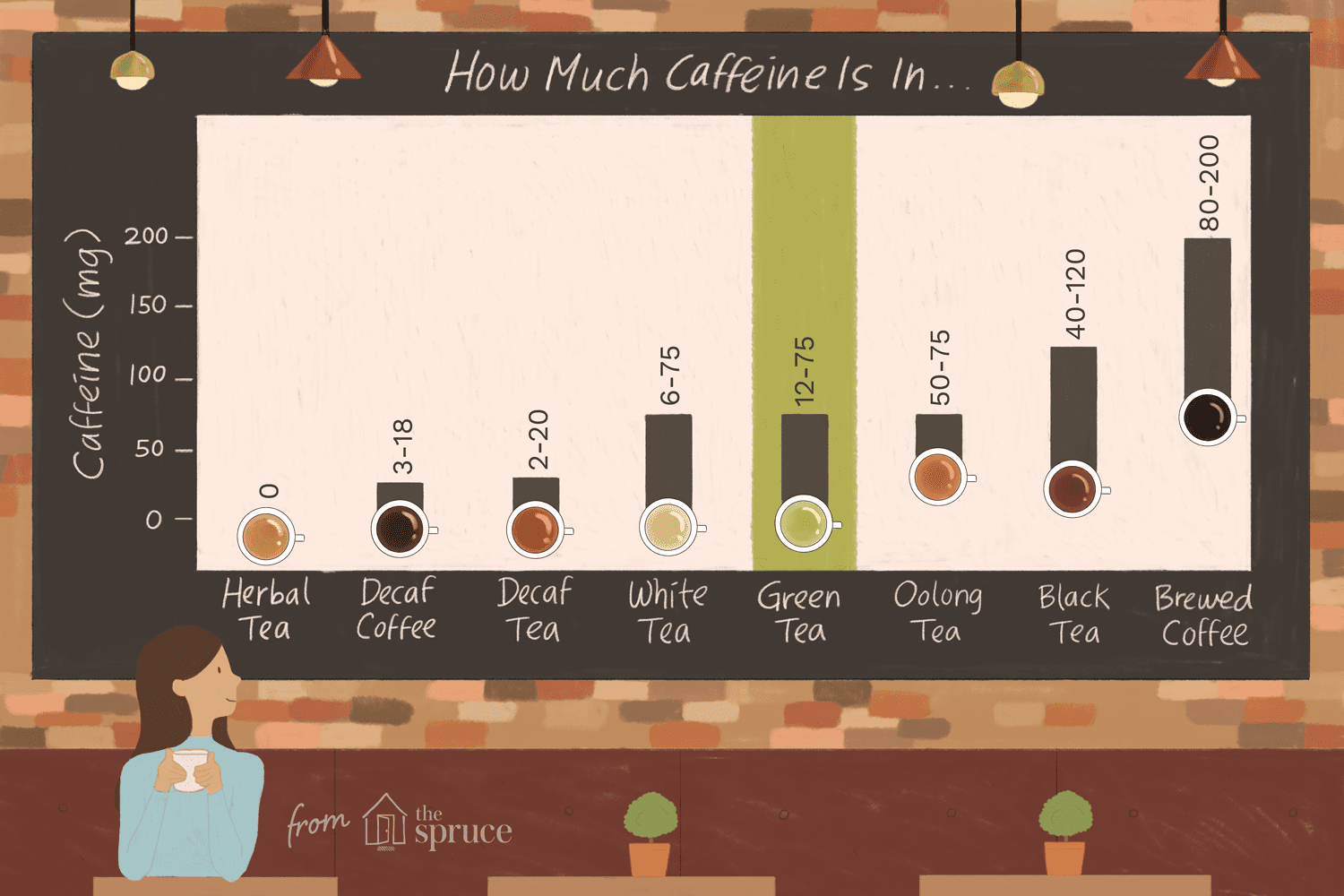A bag of green tea usually contains about 20-35 milligrams of caffeine. This amount can vary based on several factors.
Green tea is popular for its many health benefits. One question that often arises is about its caffeine content. Caffeine is a stimulant found in many beverages, including green tea. It’s important to know how much caffeine you are consuming.
Green tea generally has less caffeine than coffee, but the exact amount can depend on the type of green tea, the brewing time, and the temperature of the water. Understanding the caffeine content in green tea can help you manage your daily intake and enjoy your tea without worry. Let’s explore more about the caffeine in a bag of green tea.
Caffeine Content In Green Tea
Green tea is a popular beverage enjoyed worldwide. One of its key components is caffeine. Understanding the caffeine content in green tea can help you make informed choices about your consumption.
Average Levels
The caffeine content in green tea varies. On average, a standard 8-ounce cup contains about 20-45 milligrams of caffeine. This is lower than the caffeine found in black tea and coffee. Still, it’s enough to provide a gentle energy boost.
Factors Affecting Caffeine
Several factors influence the caffeine levels in green tea. The type of tea leaf used plays a big role. Younger leaves generally have more caffeine. The brewing time also matters. Steeping tea for longer can increase the caffeine content. Water temperature is another factor. Hotter water can extract more caffeine from the leaves. The amount of tea used is important too. More tea leaves mean more caffeine. Processing methods can affect caffeine levels. Some methods preserve more caffeine than others.
Comparison With Other Teas
Understanding the caffeine content in green tea can help you make informed choices. Comparing it with other teas provides a clearer picture of its caffeine levels.
Black Tea Vs Green Tea
Black tea generally contains more caffeine than green tea. A typical cup of black tea has about 40-70 mg of caffeine. In contrast, green tea usually contains 20-45 mg of caffeine per cup. This difference is significant. It means black tea can give you a stronger energy boost.
Here’s a simple table for better understanding:
| Type of Tea | Caffeine Content (mg per cup) |
|---|---|
| Black Tea | 40-70 |
| Green Tea | 20-45 |
Herbal Teas
Herbal teas are quite different. They generally have no caffeine at all. This makes them a good choice for those avoiding caffeine. Chamomile, peppermint, and rooibos are popular herbal teas. They are caffeine-free. This is why people drink herbal teas before bed.
Here’s a quick list of common herbal teas and their caffeine content:
- Chamomile: 0 mg
- Peppermint: 0 mg
- Rooibos: 0 mg
Choosing the right tea depends on your needs. For a mild caffeine boost, green tea is ideal. For a stronger effect, opt for black tea. To avoid caffeine, herbal teas are the best.
Health Benefits Of Green Tea
Green tea is more than just a refreshing drink. It’s packed with numerous health benefits. Many people enjoy it for its unique taste and the positive impact it has on their wellbeing. Let’s explore some of the key health benefits of green tea.
Antioxidant Properties
Green tea is rich in antioxidants called catechins. These powerful compounds help fight free radicals in the body. Free radicals can cause cell damage, leading to various health issues. By drinking green tea, you can boost your body’s defense against these harmful elements.
Additionally, the antioxidants in green tea may reduce the risk of chronic diseases. This includes heart disease and certain types of cancer. The catechins in green tea also promote better skin health. They help reduce inflammation and may prevent signs of aging.
Weight Loss Benefits
Many people turn to green tea to aid in weight loss. It contains compounds that can boost metabolism. A faster metabolism means your body burns calories more efficiently.
Green tea also contains caffeine, which can improve physical performance. This means you can exercise more effectively, further aiding weight loss. Drinking green tea can help you feel full, reducing the urge to snack between meals.
| Nutrient | Amount per 8 oz (240 ml) |
|---|---|
| Caffeine | 20-45 mg |
| Polyphenols | 100-200 mg |
| EGCG (Epigallocatechin Gallate) | 30-50 mg |
- Boosts metabolism
- Enhances physical performance
- Reduces hunger pangs

Credit: twinings.co.uk
Potential Side Effects
Drinking green tea offers various health benefits. But it’s important to know the potential side effects. Too much caffeine can lead to several issues. Let’s explore some common side effects of caffeine in green tea.
Caffeine Sensitivity
Some people are sensitive to caffeine. They might experience jitters. Others might feel anxious. This happens because caffeine stimulates the central nervous system. Those with high sensitivity should limit their intake. It’s wise to start with a small amount.
Sleep Disruptions
Caffeine can affect sleep patterns. Drinking green tea late in the day might cause trouble falling asleep. It can also lead to restless sleep. To avoid this, drink green tea in the morning or early afternoon. This helps ensure better sleep at night.
Brewing Techniques
Brewing green tea correctly is essential. It ensures you get the right amount of caffeine and flavor. Green tea is delicate, so it needs careful handling. Let’s dive into the best techniques.
Optimal Temperature
The water temperature for green tea is crucial. Too hot and it becomes bitter. Too cold and it lacks flavor. The ideal range is 160°F to 180°F (70°C to 80°C).
Here is a quick guide:
- Use a thermometer for accuracy.
- Boil water and let it cool for a few minutes.
- Pour over the tea leaves.
Steeping Time
The steeping time affects both the caffeine content and the taste. For green tea, shorter is better.
Follow these guidelines:
| Tea Type | Steeping Time | Caffeine Level |
|---|---|---|
| Light Green Tea | 1-2 minutes | Lower |
| Medium Green Tea | 2-3 minutes | Moderate |
| Strong Green Tea | 3-4 minutes | Higher |
Remember, steeping too long makes it bitter. Always use a timer for precision.
Decaffeinated Green Tea
Decaffeinated green tea is a great choice for those sensitive to caffeine. It allows you to enjoy the benefits of green tea without the jitters. Many people prefer it for its mellow taste and calming effects. But how is it made? And how much caffeine does it contain?
Decaffeination Process
Decaffeination involves removing caffeine from the tea leaves. This can be done using water, carbon dioxide, or solvents. The most common method is the water process. This method preserves the tea’s flavor and antioxidants. It involves soaking the tea leaves in water to extract caffeine. The water is then filtered to remove the caffeine. The decaffeinated tea leaves are re-soaked in this water to restore their flavor.
Another method uses carbon dioxide. This is a natural and gentle process. The tea leaves are exposed to pressurized carbon dioxide. The carbon dioxide binds with the caffeine and removes it. The tea leaves are then dried and packaged. This method preserves most of the tea’s natural compounds.
Caffeine Content
Decaffeinated green tea is not completely caffeine-free. It still contains a small amount of caffeine. Typically, a cup of decaffeinated green tea has about 2-5 mg of caffeine. In comparison, regular green tea has 20-30 mg of caffeine per cup. This makes decaffeinated green tea a safer choice for those avoiding caffeine.
It’s important to read labels carefully. Some brands may have slightly higher or lower caffeine levels. Always check the packaging to know exactly how much caffeine you are consuming. This way, you can enjoy your tea without worrying about caffeine intake.
Green Tea Brands
Choosing the right green tea brand can be challenging. Each brand offers different benefits and flavors. One key factor is the caffeine content. This varies from brand to brand. Understanding these differences helps you make an informed choice.
Popular Brands
Some popular green tea brands include:
- Bigelow
- Twinings
- Lipton
- Yogi
- Celestial Seasonings
These brands are known for their quality and taste. They are also widely available in stores.
Caffeine Levels Comparison
Comparing the caffeine levels of different green tea brands can be helpful. Here is a table showing the average caffeine content per bag for some popular brands:
| Brand | Caffeine Content (mg) |
|---|---|
| Bigelow | 25-50 |
| Twinings | 30-40 |
| Lipton | 20-40 |
| Yogi | 15-30 |
| Celestial Seasonings | 20-30 |
Bigelow has the highest range of caffeine content. Yogi has the lowest. This information helps you choose the best brand for your needs.

Credit: www.bigelowtea.com
Myths And Facts
Green tea is a popular drink enjoyed by many. However, there are many myths and facts about its caffeine content. Let’s explore some common misconceptions and scientific evidence.
Common Misconceptions
Many people believe that green tea has no caffeine. This is not true. While green tea has less caffeine than coffee, it still contains some.
Another myth is that brewing time doesn’t affect caffeine levels. In reality, the longer you brew your tea, the more caffeine it releases.
- Myth: Green tea has no caffeine.
- Myth: Brewing time doesn’t matter.
- Myth: All green teas have the same caffeine content.
Scientific Evidence
Studies show that the average caffeine content in a bag of green tea is about 20-30 mg. This is much lower than the 95 mg found in a cup of coffee.
Factors like leaf quality and brewing time can affect caffeine levels. High-quality leaves tend to have more caffeine. The table below summarizes these findings:
| Type | Caffeine Content (mg) |
|---|---|
| Green Tea | 20-30 |
| Coffee | 95 |
Green tea also contains L-theanine, an amino acid. It can balance the effects of caffeine, making it a good choice for those sensitive to caffeine.

Credit: www.homegrounds.co
Frequently Asked Questions
How Much Caffeine Is In Green Tea?
Green tea typically contains 20-45 mg of caffeine per 8-ounce cup. This amount can vary depending on the brand and brewing time.
Does Green Tea Have Less Caffeine Than Coffee?
Yes, green tea generally has less caffeine than coffee. Coffee usually contains 95-200 mg of caffeine per 8-ounce cup.
Can Green Tea Keep You Awake?
Green tea can keep you awake due to its caffeine content. However, it contains less caffeine than coffee, making it a milder stimulant.
Is Caffeine In Green Tea Safe?
Yes, the caffeine in green tea is generally safe for most people. However, moderation is key to avoid potential side effects.
Conclusion
Green tea offers a moderate caffeine boost. It’s less than coffee. You enjoy a steady, gentle energy lift. Perfect for daily consumption. Balance your caffeine intake easily with green tea. It’s a healthy choice. Keep sipping and stay refreshed. Happy tea drinking!
